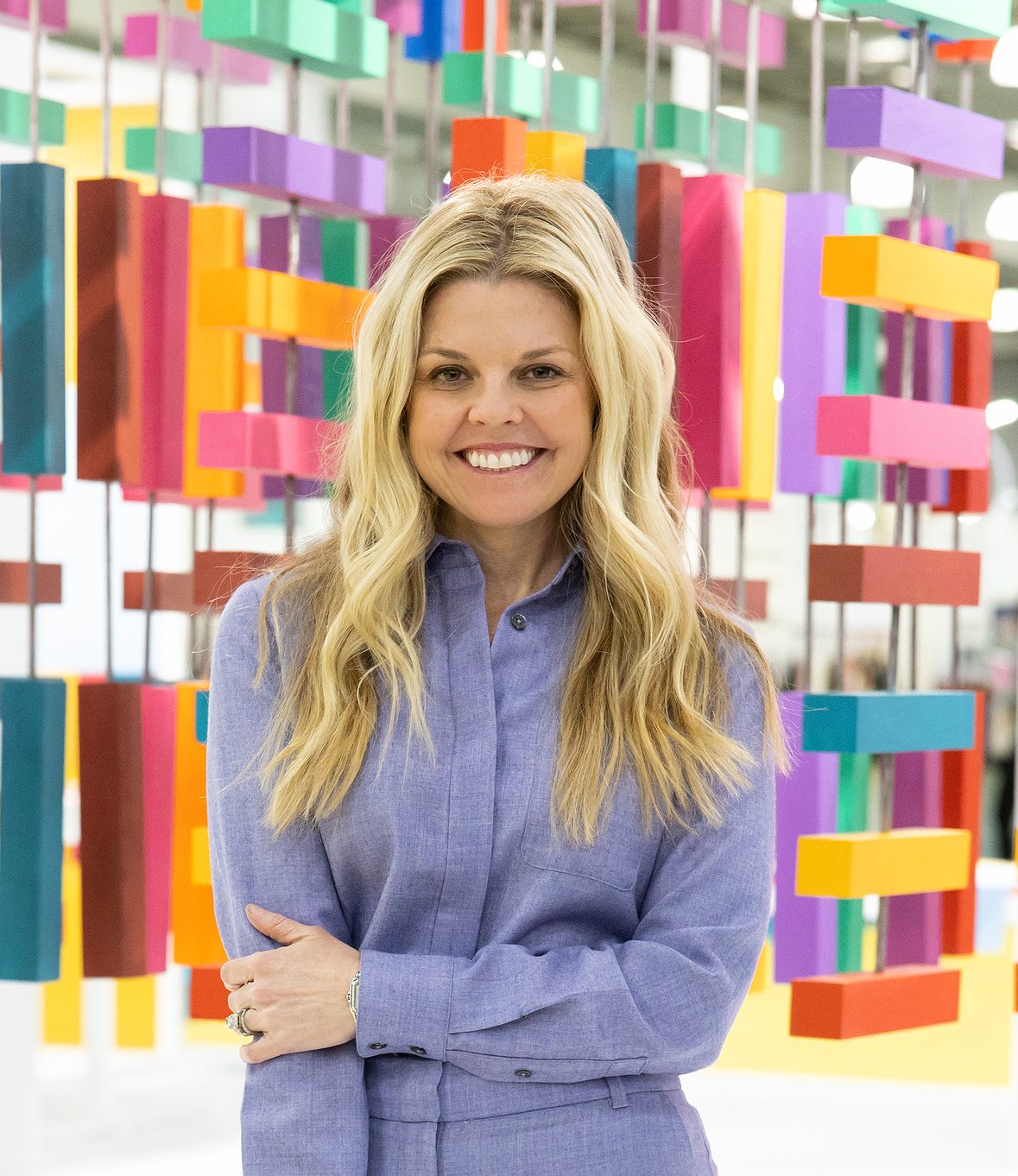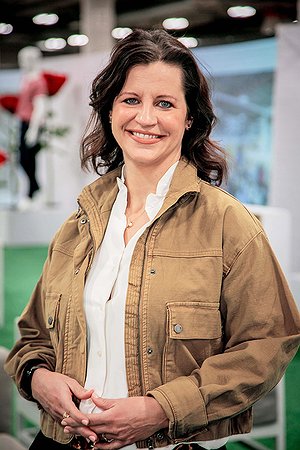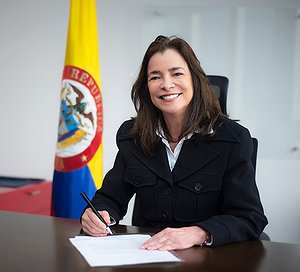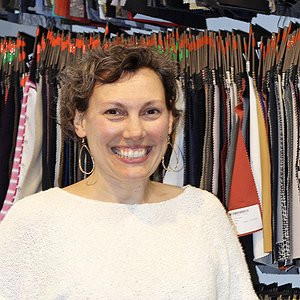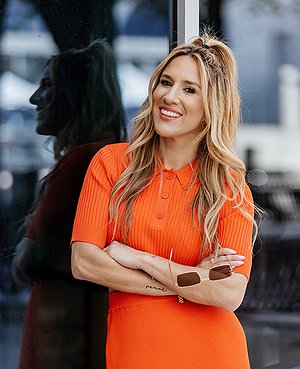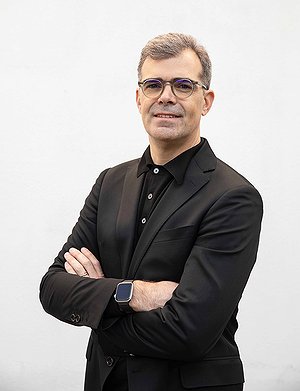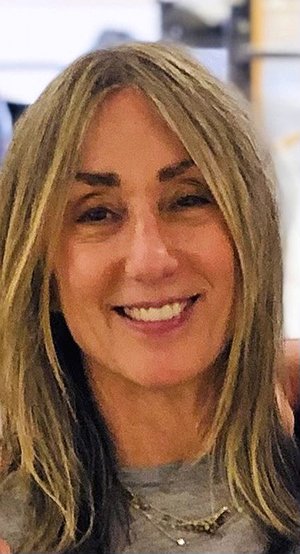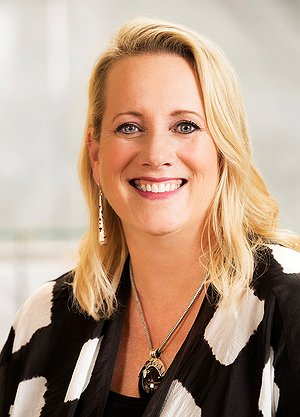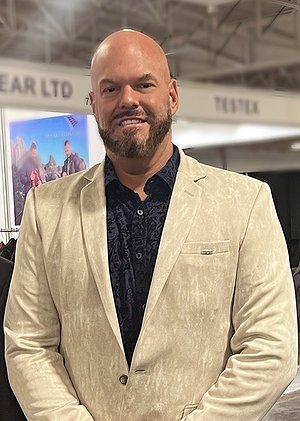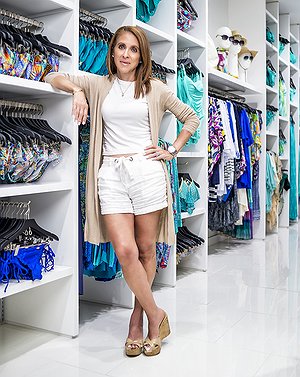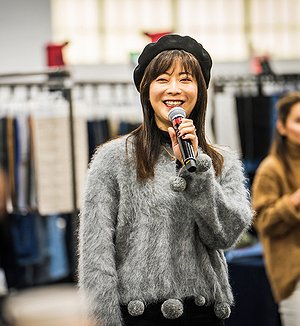Taking Steps Toward Producing a Cleaner, Greener Trade Show
Trade Show Q&A
As of Friday, June 16, 2023
Fashion and apparel businesses often receive blowback for contributing to waste, carbon emissions, pollution and unfair labor practices, but during the last few years growing consumer concerns and commitments from brands have helped these industries clean up and contribute to greater ecological care. This growing concern for the environment has reached all aspects of the apparel business, including trade-show production.
As an integral component of the fashion business, the trade show affords opportunities to lead with greener practices simply by offering cleaner options for exhibitors and highlighting sustainable ecological efforts to guide attendees toward change. The central purpose of trade-show production has been to cultivate a community of like-minded brands, buyers and industry leaders to discuss the products, concepts and actions that can move the apparel industry forward. Producers who recognize the potential for their events to lead by example are applying clever tactics and innovative technologies to host cleaner, greener trade shows.
California Apparel News asked trade-show leaders: What sustainable, ecological actions can trade-show producers take to create greener events?
Jennifer Bacon
Vice President of Fashion and Apparel Shows
Messe Frankfurt, Inc.
www.apparelsourcingnewyorkcity.com
Messe Frankfurt’s company core has been based on the principles of sustainability and sustainable business for decades. A few years ago, we began working with the United Nations Office for Partnerships and the United Nations Conscious Fashion and Lifestyle Network, and we set the target of promoting the Sustainable Development Goals.
In an effort to meet these expectations of sustainability, Texworld NYC has adopted many new procedures. We now have digital visitor and exhibitor badges, and our show’s mobile app houses all information that was formerly printed on brochures and handouts. We also aim to work with sustainable vendors who share the same values and continue to incorporate the topic of sustainability on the show floor and in our educational series. Our exhibition-booth walls are also now created out of reusable material in order to reduce waste from show to show. Lastly, we have begun participating in the Javits Cares Program, which successfully diverts tens of thousands of leftover exhibit materials such as furniture and household items to local nonprofit organizations.
Tricia Barglof
Executive Director
OffPrice Show
As producers of trade shows, sustainability should be foremost in our minds. It is our duty to be advocates within the industries we serve, and the OffPrice Show takes its sustainable options very seriously.
Some examples include using digital monitors and big screens to decrease the use of foam-core and vinyl printed signs. We further reduce printed materials by using our show app, which offers exhibitor lists, show-floor maps and show guides all in the palm of the attendees’ hands. We reuse and repurpose signs, banners and carpeting to get multiple uses out of the products. And we replaced items that are not eco-friendly with items that are more sustainable, like carpet made of bamboo.
We offer on-site programs to recycle general waste and encourage our exhibitors to use modular booth solutions to move away from one-time-use-only materials. Our Sustainable Style program pledges to promote circularity within the fashion industry and bring awareness to the importance of extending the life cycle of apparel, accessories and gift products.
The OffPrice Show has been a part of the sustainable solution for over 25 years by extending the life cycle of the product. Our show offers overrun, overstock and clearance items the chance to recirculate in the economy. Sustainability has always been a quiet partner of the products seen at our show.
As promoters and global citizens, we can minimize our carbon footprint with our sustainability efforts while always challenging ourselves to do more.
Carmen Caballero
President
ProColombia
Making your event sustainable starts at the planning stage and impacts all your decisions, including the contractors, sponsors and suppliers you work with. Trade-show producers can put in place several practices and commit to making sustainable choices when planning an event, such as sending digital invitations and avoiding paper invites, which we always do. Other examples—cutting down on waste and using QR codes to check in attendees easily; recycling, using whiteboards or chalkboards instead of printed signs; and using reusable materials to construct the components of a booth setup such as walls, carpets and furniture made of recycled materials and fabrics.
At ProColombia, the promotion agency of Colombia’s Ministry of Trade, Industry and Tourism, we are interested in having and participating in greener events, but we must say that our commitment to sustainability goes beyond this and impacts all our industries.
We are happy to say that Colombia ranks first in Latin America in applying ethical practices and sustainable development, second in social responsibility, and second in Latin American countries overall in the Environmental Performance Index. We have a fashion industry that is already renowned for the use of ecological, recycled, natural and degradable materials as well as eco-friendly product development, the promotion of responsible purchasing criteria, the decrease in the use of chemicals in the manufacturing process, and respect for the human and labor rights of workers.
Today, Colombian companies produce garments with recycled components and have policies to recover the marine ecosystem. We also have successful cases of leading companies in sustainable approaches, such as Patagonia, which, aware of the advances in working conditions and sustainable policies, has found a sourcing option in Colombia.
Quratulain Fatima
Trade and Investment Counselor
Consulate General of Pakistan Los Angeles
As a Pakistani trade diplomat, I recognize the significance of sustainable and ecological practices in international trade. Trade shows are a prominent platform for businesses to showcase their products and services, but they can also have a notable impact on the environment. Therefore, it is crucial for trade-show producers to take sustainable and ecological actions to create greener events that align with global standards.
One of the foremost measures that can be taken is reducing waste. Trade-show producers can encourage exhibitors to use eco-friendly materials and minimize the use of plastics. They can also provide recycling bins and composting facilities at the event to promote responsible waste disposal. Additionally, digital marketing can be utilized to reduce paper waste by using electronic invitations and brochures.
Reducing energy consumption is another key aspect of creating sustainable trade shows. Trade-show producers can utilize renewable energy sources such as solar or wind to power the event. They can also encourage exhibitors to use energy-efficient lighting and equipment. This can significantly reduce the carbon footprint of the event and make it more environmentally friendly.
Transportation is another critical area where sustainable measures can be taken. Trade-show producers can encourage attendees and exhibitors to use public transportation or carpool to reduce the number of vehicles on the road. They can also provide shuttle services or electric vehicles for transportation within the event venue, further reducing carbon emissions.
Water conservation is also a crucial factor in creating sustainable trade shows. Trade-show producers can use low-flow toilets and faucets to reduce water consumption. They can also encourage exhibitors to use water-efficient products and provide drinking-water stations instead of bottled water.
By implementing sustainable measures such as reducing waste, minimizing energy consumption, promoting sustainable transportation and conserving water, trade-show producers can create greener events that meet global standards.
Hilary France
Co-founder and CEO
Brand Assembly
At Brand Assembly, we put an emphasis on producing our trade shows using responsible and sustainable best practices. One of our team members goes as far as bringing plastic and glass bottles home to recycle. She noted, “Sustainable actions trade-show producers can take are to partner with local recycling foundations that can facilitate recycling practices at the shows.” We can also instate the use of compostable dining ware for meals and other food items.
Betsy Franjola
Founder
Preface Show
Trade-show organizers have the opportunity to look at every aspect of their shows to reduce energy consumption and product waste. Each season at Preface we review the purpose of each item used during the event. Are these items meaningful or provide added benefits for the attendees? If not, how can they be updated or removed? Simple steps like going paperless for booklets and brochures to reduce waste are great, but what about the rolls of synthetic carpeting used throughout massive exhibition halls? Placing recycling bins and clear instructions outlining the items that can be recycled are the first steps, and it is important to understand municipal capabilities to ensure waste reaches its intended destination.
Preface is a small, boutique-style show, so we have the benefit of being lean. Limiting our exhibitor list allows us to focus on our mission of reducing our impact on the environment. By using real flatware and dishes, we minimize paper and plastic disposables. We manage signage in-house to eliminate single-use banners. Materials utilized for presentation forums are rented or reused as much as possible.
Organizing an event requires a lot of hard work, and while there isn’t a perfect solution—yet—taking the time to think about the details of each trade show can move the industry in a more ecological direction.
Kirsten Griffin
Visitor Promotions Director
Curve/Comexposium
We at Curve are continuing to expand our market share by offering regional shows and events for people to connect. This positively impacts the environment as people do not have to travel so far and helps reduce their carbon footprints.
Kelly Helfman
President
Informa Markets Fashion
Informa Markets Fashion is committed to creating more-sustainable practices industrywide. We have found that recycling, going digital and offering reusable booth packages are a few of the ways that have supported our in-person events to become more sustainable.
Being creative with the materials you are using on site will allow for flexibility when recycling or repurposing. For example, the carpet material that we use is recyclable, and if there is additional left over we will store it for the next season. Another example is greenery on the show floor. Plants or trees can be donated or planted once the show is completed. I recommend working with local organizations to donate items from the show. This is a great way to recycle and repurpose and also to give back to the communities we are working in.
Utilizing digital alternatives to paper products has significantly reduced paper waste and the carbon footprint affiliated with shipping these products. Digital badges, directories and signage are environmentally friendly and cost efficient. Going digital has allowed for a more interactive approach to these products and has given us the ability to make last-minute adjustments.
Many of our exhibiting brands have decided to take advantage of our reusable booth packages. This includes the walls and shelving units that are reusable but modifiable so that brand has creative flexibility with each season. These packages are then stored locally, cutting the environmental impact of shipping these bulky items to and from the brand’s facilities. This offering makes planning much easier for both our team and the exhibiting brand as the setup is consistent year over year.
Gilles Lasbordes
General Manager
Première Vision
Shows are ephemeral events by essence. That’s why they are not seen as being potentially ecological. Each event is different, but Première Vision is led by three main drivers: reduce, recycle and reuse. Première Vision has implemented a series of initiatives and practices to anchor the company and its collaborators in a more globally eco-friendly approach to ensure its events are as eco designed as possible.
Our stands can be reused from one session to the next. Their design takes into account sustainable choices in terms of materials, manufacturing, transport, storage and end of life. We choose LED lighting to optimize energy consumption. Our forums are eco designed, according to the choice and optimization of the use of materials and guidance regarding good construction practices for better quality reuse of the structures. We use more-sustainable signage by abandoning the use of canvas in favor of an ecological support made from recycled plastic bottles, using new-generation adhesives with solvent-free glues and improving the ink used on all materials.
The carpets are collected, folded and formatted, then shredded and transformed into granules for the plastics industry to be recycled. The shredded cotton is used to make insulating panels. We sort wood, plastics, paper and cardboard, which allows roughly 60 tons of waste to be processed.
Première Vision has also partnered with the Co-Recyclage company for the reprocessing of furniture and materials used at its shows. In February 2022, more than 11 tons of wood from the forums were recycled, and 8 tons from the various decorations were given a second life. In partnership with VIParis, manager of the exhibition venues, Première Vision organizes the daily recovery of unsold food from the show’s catering areas. It is then redistributed in a short circuit to food banks such as the Red Cross.
Meryl Mandelbaum
Managing Director
Designers and Agents
Designers and Agents is regarded as an early leader in sustainability awareness. For almost 20 years, D&A has identified and supported ecologically minded brands through its multifaceted green initiatives—Green Leaf and Green Market.
Green Leaf identifies brands that are making strides toward incorporating sustainable practices in the manufacturing and sourcing of their products. These brands are designated with a Green Leaf icon on their booth signs as well as in exhibitor directories.
Brands that demonstrate the majority of their product line is achieved through ecologically sensitive practices and/or fair-trade affiliations are eligible for Green Market status. Green Market brands are designated by special signage and notation in show directories.
Additionally, D&A continues its efforts of promoting sustainable practices in its event production through energy-efficient lighting, improved recycling, biodegradable catering supplies and ecological cleaning supplies. On an internal level, the D&A team is continually exploring new methods to improve its sustainability through recycling, encouraging green commuting, reducing paper products and digitizing all inter- and outer-company communications.
Bob Maricich
CEO
International Market Centers
Atlanta Apparel
Las Vegas Apparel
At IMC, the transition to a more-sustainable future for our trade shows is nonlinear; it is a process and a commitment to long-term change. We are taking steps at each of the 12 apparel markets we produce in Atlanta and Las Vegas to cut down on waste and incorporate reusable alternatives wherever possible.
Trade shows are known to produce large amounts of waste. While we can’t address the overall carbon footprint of attendee travel to our shows, we can directly improve our markets’ environmental impact with changes to our permanent-showroom and temporary trade-show facilities.
In 2019, IMC began reducing the use of aisle carpeting, a limited-use product, leading to the elimination of 600,000 square feet. We also eliminated plastic badge holders—50,000 of which had been used each year—in favor of a sustainable, recyclable paper alternative. The markets also reduced paper use by shifting from print to digital-only, app-based versions of daily event schedules, dining listings, fashion-show programs and directory supplements, which saves thousands of sheets per year.
In addition to waste reduction, IMC also has made conscious efforts to find greener energy alternatives for our permanent-showroom facilities. One of the largest-scale initiatives included changing more than 50,000 incandescent lightbulbs to LED.
We also introduced an electric-powered concierge car to transport buyers between our market buildings and downtown-Atlanta hotels. And, we are working with the City of Atlanta to allow reopening water fountains, which were restricted during the pandemic, to reduce disposable-plastic-bottle waste.
As one of the largest market owners and operators in North America, IMC aims to continue reducing waste and limiting energy usage to make our markets greener whenever possible. It is a top-of-mind point of research and integration, and we look forward to continuing to contribute to a more-sustainable wholesale shopping future for our industry.
Debby Martin
Founder/Owner
Bungalow Tradeshow
Trade-show producers have a significant impact on the environment through the resources they consume and the waste they generate. One of the most important things trade-show producers can do is to choose a sustainable venue that has environmentally friendly features such as LEED certification, energy-efficient lighting and water-conservation measures. This does not only reduce the environmental impact of the event but also saves costs on utilities.
Another way to create a greener event is to reduce waste. Trade-show producers can use reusable or biodegradable materials for banners, signage and promotional items. They can provide recycling bins throughout the event space to actively encourage their use. Additionally, they can encourage attendees and exhibitors to use digital communication instead of printed materials, which saves paper and reduces the carbon footprint.
Trade-show producers can also use eco-friendly transportation. They can encourage attendees and exhibitors to use public transportation, bike or walk to the event. They can provide electric-vehicle charging stations and shuttle buses that use clean energy.
Another way to create a greener event is to use energy-efficient lighting and equipment. They can turn off lights and equipment when not in use, which saves energy and reduces costs.
Trade-show producers can also provide sustainable food options to reduce the environmental impact of catering. They can use local, organic and seasonal ingredients. They can offer vegetarian and vegan options and avoid single-use plastic containers and utensils.
Finally, trade-show producers can engage attendees by educating them about the event’s sustainability initiatives and encouraging them to participate. They can provide information on how attendees can reduce their own carbon footprints.
By taking these sustainable and ecological actions, trade-show producers can not only benefit the environment but also provide cost savings and improve the overall experience for attendees and exhibitors.
Melissa K. Montes
Vice President, AXN and WWIN
Clarion Events
As trade-show organizers, we have the social responsibility to make sustainability a part of our ethos. At Clarion, sustainability has been organically integrated into our events in myriad ways. We have taken strategic steps to lead with intention and consider what is truly necessary for our events to maintain the best possible customer experience while minimizing the negative impact on the environment.
A few examples of putting this ethos into practice include eliminating the use of badge holders or creating bins where attendees can recycle them upon departure; minimizing the number of printed collateral; adopting tech-based solutions such as apps and digital signage for show guides and wayfinding; and, when possible, partnering with facilities that are proudly green and share with us the best practices they use to be eco-friendly.
Our marketing and operations teams overlap their efforts where possible and work diligently to reduce food waste during events. Our companywide policy is to donate any items that are left over from the events to community-based organizations that help those in need. In addition, we launched Clarion Cares, a corporate initiative aimed at identifying multiple charities to find the right fit for each of our portfolios and events and to roll out partnerships for each in 2023 and beyond.
Clarion Events is committed to minimizing its carbon footprint when operating its shows and events, and we recognize that sustainability goals and expectations will continue to evolve. In addition to internal research on best practices, we use surveys at our events to garner insights from our customers on how we can best exceed the expectations of our communities.
Cindy Morris
President and CEO
Dallas Market Center
We are in a unique position since we own and operate our facilities and shows. Our footprint is 5 million square feet, operating year-round, so we take sustainability practices seriously. The good news is the decisions that are right for the environment and valued by our customers can also help the company bottom line.
We’ve also found that once you outline sustainable practices, company leaders and individual employees become invested not only in follow-through but also by suggesting new efforts.
As a year-round producer of trade events, a top initiative for us is waste management. We recently engaged a new service provider so that waste sorting takes place on site, with a special emphasis on cardboard, which represents more than 70 percent of our waste. We are now recycling nearly all of it.
The second element we are tackling is energy consumption. Over the last year, overhead lighting on all trade-show floors, and in stages across the marketplace, has been converted to LED, which lowers consumption dramatically. And we operate all climate systems and vertical transportation on a cycle that is not on 24/7 but according to the use of our facilities.
The third element is working with great service providers. Our food-service provider does a fantastic job of minimizing waste by using recycled and easily recyclable food-service materials. We also work with our exhibition-services company to reuse trade-show materials for multiple shows.
Finally, we have made smaller changes with big results. We recently converted our trade-show floors to polished concrete and are using less carpet. Printed materials and signage have been cut back significantly, and we no longer produce a trade-show directory; instead, we direct all attendees to use our app.
Finally, we are replacing most legacy water fountains across the campus with modern hydration stations to refill water bottles.
Gerry Murtagh
Owner and President
CALA Shows Inc.
At our events, we recognize our critical role in preserving the environment and take our responsibility toward it very seriously. We firmly believe that minimizing waste and reducing our carbon footprint is not just the right thing to do but also essential for the well-being of our planet.
We have implemented various measures to reduce waste generation and promote recycling and composting to achieve our sustainability goals. For instance, we carefully choose food-service wares that are highly recyclable and compostable, and we make sure that all compostable and reusable materials are diverted from the landfill.
Our San Francisco show, in particular, is a shining example of our unwavering commitment to zero-waste events. We work closely with trusted partners such as Green Mary to ensure that every aspect of the event is as sustainable as possible. This includes composting food waste, recycling materials and encouraging attendees to adopt environmentally conscious practices.
We firmly believe that every small step we take toward sustainability can make a significant difference in preserving our environment. We are committed to continuing our efforts toward sustainability and encouraging others to do the same.
“People don’t care how much you know until they know how much you care.”—Theodore Roosevelt
Susan Power
Founder and Show Producer
The Fabric Shows
The Fabric Shows exhibitors are a curated group of North American—U.S. and Canadian—mills, converters, importers and agents, primarily showing European collections.
We seek out exhibitors who supply eco-friendly and sustainable materials and companies offering cut-and-sew production and other services such as printing and finishing in each of the cities where our shows are located. Local manufacturing reduces the distance that raw materials and the finished product need to be transported. Based on buyer surveys, we know that it’s not just emerging designers who want domestic small-lot production. Many of the larger brands do some of their production in the Americas.
In addition to our commitment to promoting local manufacturing, our events have a very low impact on the environment. There are no big bins of waste to be hauled away after our shows. Our exhibitors mostly roll in their suitcases and roll them out again.
Attendees come to look, sit and conduct business. The show guide is now published online prior to the show opening, though we do still offer a printed guide for those that like paper in hand. Each year, we have found that the number of buyers requesting a printed guide continues to decline.
Education is an important component of our shows. At our Resource Center, buyers and exhibitors can find information about recycling fibers and fabrics. We’ve hosted companies like Fabscrap and Refiberd at The Fabric Shows, and in each of our locations we seek out other like-minded companies to participate and share the nature of their eco-friendly practices.
Jason Prescott
CEO
Apparel Textile Sourcing Shows
What actions can we take? Our trade-show management style is hands-on. So, in three short words I’d say, “lead by example.” In a few more words, focusing on actions we’ve taken and we control, I’d suggest all trade-show producers take the following three actions, if they haven’t already.
Partner with a local charity for every event and encourage your exhibitors to donate their samples. As an example, our Apparel Textile Sourcing Canada charity is Brands for Canada, and we’ve been partnering with them to support Canadians in need since ATSC’s inception in 2016.
Partner with leading industry sustainability-focused companies and spread their messaging to your audience of attendees and exhibitors. For instance, ATS partners with Worldwide Responsible Accredited Production for all of our apparel events—WRAP exhibits and speaks at all ATS events.
Spotlight your exhibitors who are the most eco-friendly—for example, at ATS we always spotlight TESTEX and those manufacturers who maintain TESTEX eco-friendly certifications. This could be as simple as including a special green logo on their booths or inviting these exhibitors to tell their stories on the seminar stage.
These are just three of the actions we take. These are the three steps we can control that most show producers can easily duplicate. We challenge our staff and partners each year to be more sustainable and to take more action. We all can continue to improve.
Moriah Robinson
Event Director
California Market Center
Over the past few years we’ve implemented several sustainable efforts to create greener trade-show practices.
Printed signage can be a big contributor of single-use waste. In order to lengthen its life, we’ve generalized our signage for annual usage, reducing the amount of printed signage per show. We’ve also reduced printed materials by streamlining our attendee registration and exhibitor contract process through the use of QR codes and online forms. At LA Textile, as well as at our fashion markets, our event-credential buttons are recycled after each show, and any excess product, such as featured textiles, trims and fabrics, is donated.
Additionally, we work with vendors who have adopted sustainable best practices. Our coffee vendor serves thousands of artisan coffees to our attendees and exhibitors each season, and they only include a plastic lid upon request.
For our LA Textile shows we make a concerted effort to integrate sustainability into our programming by featuring key industry panelists, highlighting exhibitors who offer sustainable solutions and supporting the education of our attendees by partnering with leaders in the space. Most recently, we collaborated with Materials Exchange on a Fashion Circularity Workshop hosted by Andrea Kennedy.
Another great way that trade-show producers can create greener events is by hosting their events at venues and properties that care about a sustainable future. At California Market Center, our lighting is Title 24 certified, which is designed to reduce wasteful and unnecessary energy consumption. Our waste is sorted and recycled; we have composting on site; and, in collaboration with Alveole, we’re home to a few beehive hotels, which help support pollinator populations.
Judy Stein
Executive Director
SwimShow
SwimShow has taken several big steps forward in the trade-show industry to create a greener event over the past couple of years. First and foremost, we eliminated the use of carpeting on our show floor. If you think about trade shows, you may realize that most install a brand-new carpet for every typically three-day show. Maybe it’s intended to match its brand colors or create a pop of color, but this carpet often measures tens of thousands of square feet and is sent directly to the landfill after just a few days of a show.
We embraced the polished concrete look and believe the show floor looks and feels more organic because of it. We also eliminated the printing of paper badges and lanyards that not only waste paper, fabric and metal but also go directly into the trash after the show. We have gone virtual with our SwimShow mobile app for iOS and Android devices where our buyers, press and other guests can check in, see our floor map and interact directly with all of our exhibitors.
Swim designers often work with new textiles and fabrics that are made from recycled materials—some even biodegrade. We launched SwimLab in 2022, a section on our show floor to embrace brands that are taking this leap into sustainability. Lastly, we are proud to hold our show in Miami Beach, Fla., a city that takes pride in taking sustainable steps such as eliminating the use of plastic bags and celebrating the swim industry, which has consistently been taking strides to be more sustainable throughout the years.
Mary Taft
Executive Director
Fashion Market Northern California
Sustainability and the desire to go green in any way possible is the top priority of our country, and we should all do what we can to help. Even if it is baby steps—every bit matters.
FMNC tries to do whatever we can to help the environment through the small things we can do on site at our events, in addition to keeping up with what’s going on in our industry in areas like production, packaging and transport of products that are represented at our shows. In doing so, we offer a category of sustainability as well as “made in the USA” in our show book. This helps the discerning buyer to quickly find products that fit in this category to fulfill their commitment to the environment.
Those in attendance at any of our shows can visit a water-refill station located in the lobby for easy access. We no longer offer bottled water in our buyers’ lounge or during our free lunch service—all water is served in glassware from a dispenser. We provide recycling receptacles and recycle our badge holders.
The Embassy Suites San Francisco Airport hotel also only supplies room-cleaning service if requested. The saving of water and waste by using towels more than once is huge. They have also recently changed from bar soap and many tiny plastic receptacles for toiletries to large refillable containers, which really cuts down on waste.
FMNC will continue to stay on top of the priority of protecting our environment and strive to find new ways to achieve that goal.
Roy Turner
Show Director, Surf Expo
Senior Vice President, Emerald
Surf Expo understands that green initiatives are an important part of producing large events. We are fortunate that our partner, the Orange County Convention Center in Orlando, Fla., is one of the largest LEED gold-certified convention centers in North America. Their Environmental Management system is ISO certified, and they also have APEX/ASTM certification.
We look to reduce our events’ environmental impact by using recycled materials for our collateral, including signage and promotional items; providing walkable housing to our event; composting food waste; recycling paper, plastic and metal on site; and eliminating carpeting from our event floor.
Surf Expo and all shows produced by Emerald share a deep commitment to preserving the planet’s resources, championing corporate conservation efforts and minimizing our negative ecological impact to reduce our businesses’ environmental footprint through best practices.
We actively collaborate with vital partners and suppliers across the event industry such as venues, hotels and general-service contractors to further our sustainability initiatives and work toward creating a thriving ecosystem where environmental well-being and business success go hand in hand.
Emerald’s comprehensive approach and initiatives toward environmental sustainability are showcased on the company’s dedicated Environmental, Social and Governance page, which serves as a valuable resource to learn more about our sustainable practices, environmental-impact-mitigation strategies ongoing efforts to contribute to a greener future.
Vivian Wang
Managing Director and Global Sales Manager
Kingpins Show
Environmental stewardship is part of the mission at Kingpins, and it affects every decision we make at the show-production level. When we work with our suppliers, we are always aiming for the highest quality possible and best experience for exhibitors and attendees. But we also consider the social impact and environmental responsibility of all of our production choices. Is it sustainable? Is it recycled? Is it reusable? Does it save energy? Does it lead to something better, more meaningful and inspirational?
For example, we are able to reuse signage because many of our exhibitors repeatedly return show after show. We were able to cut down on paper by moving our exhibitors’ lists, seminar schedule and other show information to the Kingpins Show app. Food and beverages have always been free to all attendees, but we give everyone a food card—printed on recycled paper, of course—to remind everyone that they should take only what they need.
We also require Kingpins exhibitors to meet or exceed standards in the areas of corporate social responsibility, environment and chemical usage.
Sustainability has always been central to our seminar lineup, and in recent years we expanded our show offerings to including initiatives such as our Most Sustainable Product, which highlights the denim industry’s latest sustainable, responsible and circular products and processes, and One Denim, which was conceived to address the excess waste of money, time, energy and water in the denim industry by demonstrating how much variety and variation can be achieved with a single fabrication.
* Responses may have been edited for clarity and space

